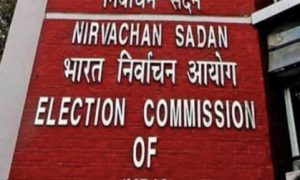Even as the political battle over Delhi’s water woes continues, a trade organisation of Reverse Osmosis (RO) purifier makers has knocked on the doors of the Supreme Court against a ban on use of RO filters in several parts of Delhi.
The Water Quality India Association has moved the Supreme Court against a ban imposed by the National Green Tribunal (NGT) on use of RO filters in Delhi as they “unnecessarily result in rejecting 80 per cent of potable water”.
Meanwhile, Delhi’s ruling Aam Aadmi Party (AAP) had a different take on the matter.
Senior AAP leader Sanjay Singh tweeted, “May2019, NGT orders all ROs in Del where TDS less than 500 shud be banned. RO companies panic. NGT order challenged In SC.Matter listed tomo. BIS, which sets RO standards, comes under Paswan ministry. Paswan creates panic by releasing dirty water report, a week before SC hearing.”
Singh followed up with another tweet, saying, “Any connection between release of dirty water report by Mr Paswan and SC hearing tomo?”
The NGT in its order on May 20 had directed the Ministry of Environment and Forests to frame rules for manufacturing and sale of RO filters, and banned use of RO in areas where the Total Dissolved Solids (TDS) in water was already low.
It had also directed that wherever RO is permitted, manufacturers should ensure that more than 60 per cent of water should be recovered. Current systems discard about 80 per cent of the water which is being treated, leading to huge wastage.
The NGT had also directed that the Centre should lay down guidelines to ensure the use of RO reject water for purposes such as utensil washing, flushing, gardening, and cleaning of vehicles and floor mopping.
The NGT order had come after an expert committee set up by the tribunal recommended a bar on use of RO technology, especially in municipal areas where piped water is supplied.
The committee pointed out that RO technology “is generally not required for the places having piped water supplies) primarily supplied by Municipal Corporations/Municipalities) from surface water sources like rivers, lakes and ponds. These sources have TDS levels for low as compared to groundwater sources.”
It had also recommended that the water purifier market could be classified based on the TDS level of the water being supplied/available in the area to ensure that safe water is being used in households, and water is not unnecessarily wasted.
Directions were issued to the Ministry of Environment and Forests to issue a notification to frame rules regarding the sale of RO filters, and to create public awareness about the wastage of water by ROs.
It also directed the MoEF that awareness should be created that TDS of at least 150 – which includes dissolved calcium and minerals in drinking water, is necessary for healthy water.
However, on November 4, the NGT found its orders have not been implemented. The rules to regulate RO manufacturing and sales have not yet been created. The NGT has given time to the MoEF and CPCB till December 31 to frame the rules.
In addition, the green court has directed that if rules are not framed, the MoEF officials will lose their salary as fine.
Days after the NGT order, the Water Quality India Association moved the Supreme Court, seeking a stay on the NGT orders.
The WQIA plea has alleged that the NGT order would seriously impact their industry. Further, the industry body has argued that the ban on RO should be lifted since “in 98 districts in 13 states, there are High TDS which can be purified only by RO systems”.
The Supreme Court is set to hear the plea on Friday.
Meanwhile, a recent report by the Centre over the purity of piped water in Delhi has created a huge political controversy, with the AAP government claiming that the report is incorrect.
The Centre’s report also seems to contradict the report of the expert committee put before the NGT, which had said that piped water supplied in municipal areas largely does not need RO filtrations as compared to the groundwater.
With the MoEF still to give a detailed report on the groundwater usage in 21 cities, including Delhi, the RO manufacturers will be looking to the apex court for relief.


































